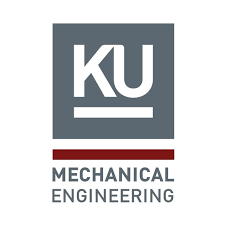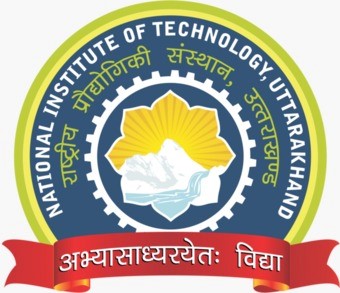About KU

The Faculty of Engineering traces its origins back to August 1, 1938, when it was founded as the Chang Chonprathan School under the Royal Irrigation Department of the Ministry of Agriculture and Cooperatives. With a rich history of development, it later became the Faculty of Engineering, continuing to evolve and expand its academic programs.
The Department of Mechanical Engineering was formally established in 1967, following the introduction of its Bachelor of Engineering (B.Eng.) program in Mechanical Engineering in 1965. Today, the department offers a variety of programs, regular, special, and international, designed to meet diverse student needs. In addition to its core Mechanical Engineering program, the department provides specialized undergraduate programs, including the Bachelor of Engineering (B.Eng.) in Electrical-Mechanical Manufacturing Engineering (EMME) for the Thai program and the Bachelor of Engineering (B.Eng.) in Digital Manufacturing and Robotics Integration (DMRI) Engineering for the English program. At the postgraduate level, the department offers a Master of Engineering (M.Eng.) in Mechanical Engineering and a Doctor of Philosophy (Ph.D.) in Mechanical Engineering. Committed to academic excellence, the department equips students with a strong foundation in engineering principles and specialized expertise to meet the evolving demands of industry.
About MUJ

Manipal University Jaipur (MUJ) is Rajasthan’s first university to be awarded NAAC A+ grade. The permanent campus of MUJ is set up on 122 acres of land, in the outskirts of Jaipur and is by far one of the best campuses in the region. It has been ranked 64th university as per the NIRF ranking, India. Manipal University Jaipur offers around 80 programs and has around 17,000 students.
MUJ has a world-class infrastructure, incorporating advanced research facilities and a modern library.
About MIT Bengaluru

Over the years, MAHE has transformed itself into a centre of excellence that offers knowledge to about 33000+ students from 67+ nations, ably supported by 2500 faculty and almost 10000 support and service staff. MAHE is accredited with NAAC A++ Grading in the 3rd cycle and is ranked 7th among private universities as per the latest NIRF ranking. Consisting of sister campuses in Jaipur, Mangalore, Bangalore, Jamshedpur and Sikkim along with off-campuses in Dubai, Malaysia, Nepal and Antigua, MAHE offers various courses that cater to a wide variety of students. There are 375+ academic programs across 31+ disciplines including medicine, engineering, dentistry, nursing, allied health sciences, architecture, management, communication, humanities and many more.
The Garden City of India, Bengaluru, is now home to a new engineering institution – “MIT Bengaluru” – the latest constituent unit of Manipal Academy of Higher Education (MAHE). MAHE is proud to open its doors in the bustling cosmopolitan IT hub of Bengaluru by establishing its new engineering campus: MIT Bengaluru. It is offering five B Tech programs starting from 2021, with approval from the All-India Council of Technical Education (AICTE), MHRD, Government of India. The five approved programs are Computer Science and Engineering, Information Technology, Electronics and Communication, Computer Science and Engineering – Artificial Intelligence, and Computer Science and Engineering – Cyber Security, MAHE is recognized as a deemed-to-be university since 1993 and has been accorded the status of Institute of Eminence (IoE) by MHRD, Government of India.
Admission to MIT Bengaluru is based on a computer-based online entrance test, MET, conducted by the MAHE.
About NIT Uttarakhand

National Institute of Technology Uttarakhand is one of the thirty-one Institutes of National Importance in the country. Established in 2009, it is located in the serene and peaceful lap of the Himalayas, in the state of Uttarakhand, known as Dev Bhoomi.
NIT Uttarakhand offers B. Tech programs in Civil Engineering, Computer Science and Engineering, Electronics and Communication Engineering, Electrical and Electronics Engineering, and Mechanical Engineering through JEE Mains. It also offers M. Tech and Ph.D. programs in various disciplines.
About UMPSA

Established as a technical university in 2002, Universiti Malaysia Pahang Al-Sultan Abdullah (UMPSA) offers various engineering- and technology-based technical programmes, including high-level Technical and Vocational Education and Training (TVET) programmes.
After 21 years of glory, Universiti Malaysia Pahang (UMP) is now branded as Universiti Malaysia Pahang Al-Sultan Abdullah (UMPSA).
His Majesty Yang Maha Mulia Seri Paduka Baginda Yang di-Pertuan Agong XVI Al-Sultan Abdullah Ri’ayatuddin Al-Mustafa Billah Shah Ibni Almarhum Sultan Haji Ahmad Shah Al-Musta’in Billah, who is also the UMP Chancellor contributed a lot in shaping the country leadership, empowering education, disseminating knowledge and religion as well as the concern of His Majesty The King towards the people, especially in Pahang Darul Makmur.
This branding coincides with the university’s vision towards a leading technological university, and it will realise the aspiration of excellence achieved through academic empowerment and impactful research outputs and produce outstanding graduates to become quality human capital in driving excellent national development.
This branding will also build the university’s visibility, reputation and capabilities, which aligns with the university’s development and achievement at the age of 21 this year.
Ranked as one of the best in research and innovation within the classifications of Malaysia Technical University Network (MTUN) and Non-Research University (Non-RU), UMPSA is steadfastly committed to innovating and developing unique academic programmes through strategic international collaborations. A milestone of such innovation is UMP’s world-class dual-degree engineering programme in collaboration with Germany’s Karlsruhe University of Applied Sciences (HKA) – now seen as the benchmark for other public institutions of higher learning in Malaysia.
In research, UMPSA collaborates with local industries to focus on industry-related applications. Such research collaboration enriches the teaching and learning modules at the university and simultaneously promotes the commercialisation of research output and products.